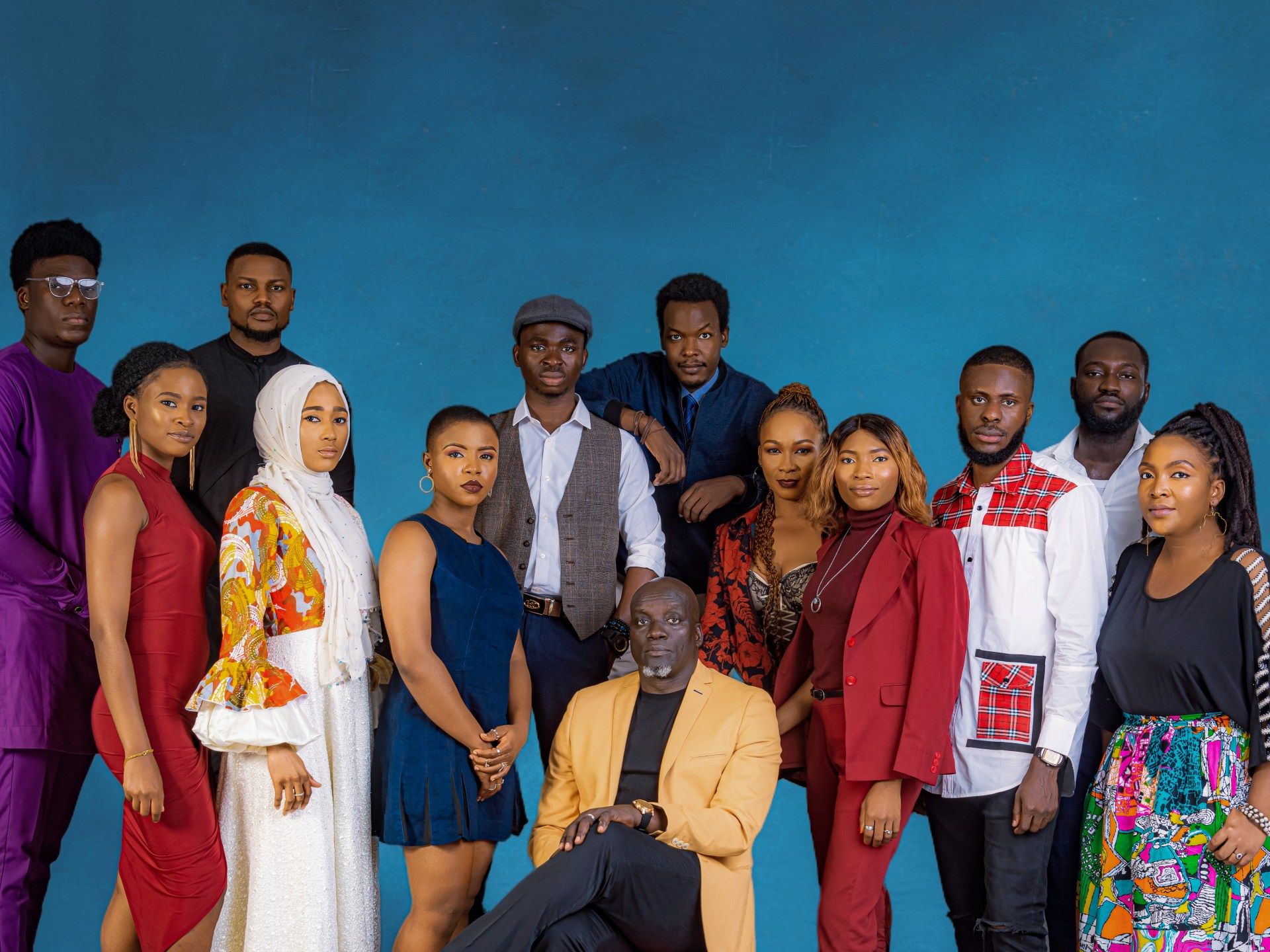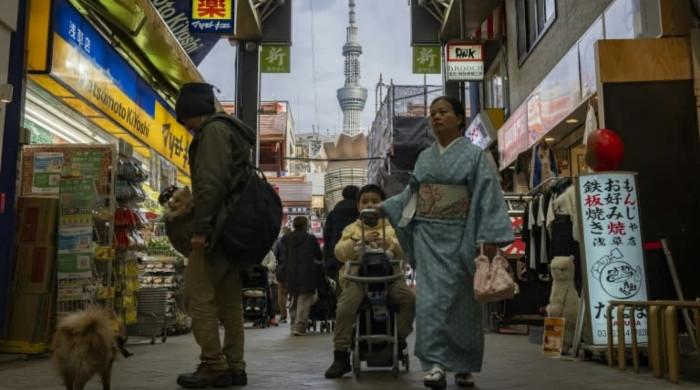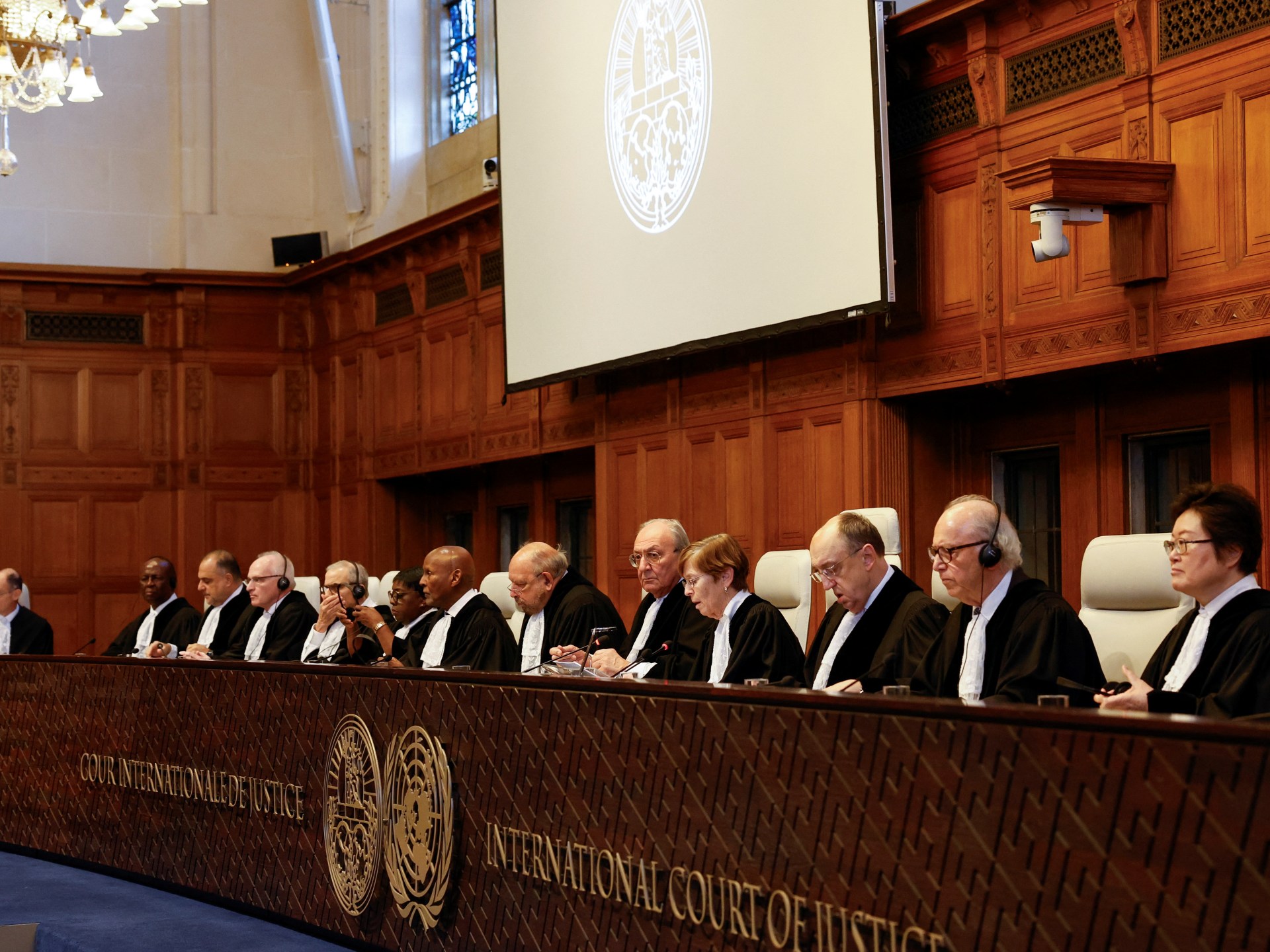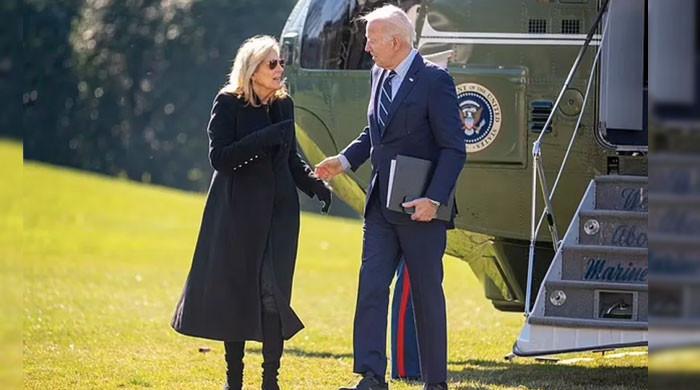In November 2020, as the COVID-19 pandemic strangled creative efforts across the planet, veteran Nigerian filmmaker Steve Gukas announced a new venture. Called First Features, he launched a search for 12 disciples, or first-time directors, to raise storytelling standards in Nollywood, the world's second-largest film industry by volume.
For decades, Nigeria's bustling industry has been known for its clever do-it-yourself ingenuity.
Local and foreign supporters and critics were united in pointing out that the industry had been held back for years by amateur directors and producers shooting cheap, direct-to-video movies using the most basic resources since the 1990s.
Today's Nollywood is a multibillion-dollar juggernaut, but despite its real or perceived success, structural challenges remain. With little government support or training infrastructure, budding filmmakers often struggle to get started.
For Gukas, trained at the London Film School (the brain behind multiple Nigerian classics such as 93 Days, the story of the Nigerian doctor who sacrificed her life to contain Ebola in Lagos), the solution was clear.
In 1993, just as the stage was being set for what is now Nollywood, the M-Net channel was establishing New Directions, a landmark training and development initiative for writers and directors from across the continent. One of the first beneficiaries was Gukas, who, upon returning home, was dissatisfied with the type of training available in Nigeria.
“A lot of this was happening in an isolated, didactic, non-practical and very short-term way, with little strategy on how to launch the careers of these directors,” he tells Al Jazeera.
He felt the need to replicate that M-Net model but also make it more comprehensive and Nigeria-centric. “Beyond giving them opportunities, we wanted to expose them to the entire journey of a director from story to screen. What does the director do? What does he bring to the table and how does he leverage the vision he has and share it with a team? he says.
Train a new generation
Those thoughts crystallized into First Features, a billion-naira (about $2.6 million at the time) initiative spearheaded by Gukas and Dotun Olakunri, another seasoned filmmaker.
It is the first phase of an initiative that identifies 12 young directors and provides training, mentoring, financing and support for the distribution of their first feature films.
The process of drawing up the final list is a competitive task: almost 1,000 applications were received in response to a national call.
Gukas was impressed by the desire to learn from all the shortlisted filmmakers. He also speaks of a realization that occurred in the minds of all the filmmakers who have had their films in production thus far.
“About halfway through the training, they realized that if the process was so rigorous, it wasn't possible to make more than one or two films in a year,” he says. This contrasts with the rapid response times that have characterized the Nollywood system.
Faculty members were found in Nigeria, Los Angeles, London and Johannesburg. Directors were paired with writers and trainees were invited to a boot camp and masterclass sessions for six months in 2021 to develop their respective projects. The training camp was held in Abuja and although the directors were physically present, some of the facilitators conducted classes virtually.
“We wanted the training to be oral, practical and experiential. But again, it has always been a challenge how to finance it and make it sustainable,” says Gukas.
In response to this challenge, First Features reorganized to offer a final slate of 12 films that had some commercial viability. An original plan to offer made-for-television movies of the month failed because financial support from television stations did not materialize.
Gukas' Native Filmworks and Olakunri's Michelangelo Productions provided the initial financing and invited investment partners to launch the first three projects. Additional investors meant that films now had to be distributed theatrically in order to achieve commercial viability.
Olakunri says that further development also influenced this decision: “We realized that the quality of the films being developed was much higher than we anticipated and that's why we decided that they could go to theaters or be streamed.”
When setting up the projects, the directors were deliberately surrounded by an experienced cast and crew on set to help build confidence. Despite initial challenges, filmmakers began to become professionals in their own right.
“They were completely involved. They grew during training, of course, but those who made their films grew even more. They came in and came out totally different,” Olakunri tells Al Jazeera.
Finding continuity
The first film from the project to see the light of day, the romantic comedy Cake, directed by Prosper Edesiri, was released in theaters in 2022. Later entries such as Love and Life, a star-studded drama with Nollywood superstar Rita Dominic in the lead . and It Blooms in June, directed by Korede Azeez, went straight to Amazon Prime Video.
For the directors, the experience has been life-changing.
“This is literally what it means for you to enter the industry,” Reuben Reng, director of Love and Life, tells Al Jazeera. “The vision I have always had for myself is to tell stories that people can identify with. “It's a miracle to be in the same room, directing people I grew up watching before I even knew I wanted to make movies.”
Dominic says his attraction to Love and Life was the prospect of working with a team overseen by Gukas. “I didn't know Reuben's work, but when I was assured that he was under Steve's tutelage, I was convinced,” he says. “I believe in giving opportunities to young people, and if they come through a channel as legitimate as the first films, why not?”
“When we got on set, it was difficult at first and we had our disagreements,” he says. “However, what I admire about Reuben is that he really knows what he wants, and in this industry, you need to have that.”
Then there is the question of the films themselves and continuity.
Beyond demonstrating that directors are capable of bringing their projects to fruition, the films have not had much else going for them.
Akintunde Damilare, editor of industrial platform ShockNG, is not enthusiastic about the quality of the titles so far or their releases. “After a year of producing these titles, the filmmakers should have joined the mainstream Nollywood system. … Maybe the movies didn't make much of an impression, or maybe we have a problem bringing new talent into the ecosystem.”
“The first films are a great idea: selecting and financing talent is important, but I don't think the initiative thinks too much about the direction these filmmakers will take from now on,” he adds. “And that gap must be considered.”
Despite First Features' challenges and shortcomings, there remains a consensus among industry people that the project fills a need.
“For me, I think of it as a kind of film school, one that offers theory and practice with someone supervising your work. I think that's important and to be honest we need more,” says Dominic.
Gukas is aware of the feedback and is hopeful that the project will continue to improve in subsequent iterations. “We want to continue building a new generation of filmmakers who come to the art with a deeper understanding of what is expected of them, as well as a greater commitment to growing the industry,” she says.












